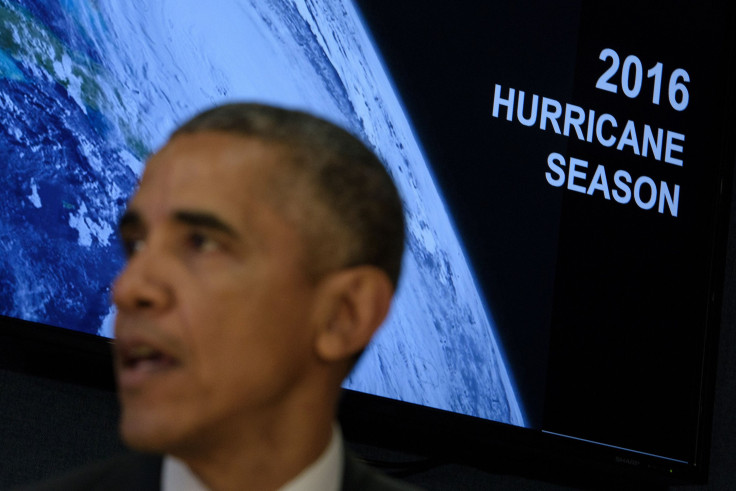Hurricane Season 2016: Updated Forecast Suggests Atlantic Could See 2-4 Major Storms

You might want to reconsider your upcoming vacation to the Keys. The National Oceanic and Atmospheric Administration updated its forecast for the 2016 hurricane season on Thursday, and the Atlantic Ocean is still looking active, with a "higher likelihood of a near-normal or above-normal season," the NOAA wrote in a news release. It could be on track to have the busiest few months in four years.
Meteorologists think there's a 70 percent chance the Atlantic will see up to 17 storms so strong they get named and up to eight hurricanes. Between two and four of those could be major hurricanes.
"We’ve raised the numbers because some conditions now in place are indicative of a more active hurricane season, such as El Niño ending, weaker vertical wind shear and weaker trade winds over the central tropical Atlantic, and a stronger west African monsoon," forecaster Gerry Bell said in the release. He added that La Niña, which is a cold water climate pattern, wasn't likely to influence the hurricanes much.
Wunderground calls August "the peak of hurricane season," which in the Atlantic runs from June through November. So far this year, there have been five named storms: Alex, Bonnie, Colin, Danielle and Earl. Only Alex and Earl were hurricanes.
Colorado State University's Tropical Meteorology Project has updated its predictions, as well. On Aug. 4, the researchers confirmed that they thought the Atlantic would have a "near-average" season, with 11 named storms and five hurricanes — two of them major.
But Philip J. Klozbach, the author of the project's forecast report, warned people not to get complacent. "As is the case with all hurricane seasons, coastal residents are reminded that it only takes one hurricane making landfall to make it an active season for them," he wrote. "They should prepare the same for every season, regardless of how much activity is predicted."
In order to prepare for a hurricane, you should:
- figure out how a storm could affect you home in terms of flooding or wind
- develop an emergency family plan
- keep gas tanks full and prescriptions stocked
- put together a supply kit with gallons of water, flashlights, nonperishable foods and cell phone chargers
- and take cues from local authorities
© Copyright IBTimes 2024. All rights reserved.






















